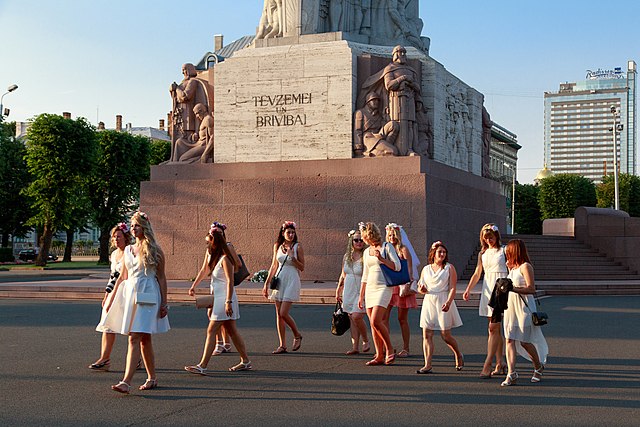
(Cupventi.com) – Following Donald Trump’s re-election as President of the United States, a cultural and political ripple has spread across the nation. A growing number of young liberal women, disillusioned and angered by the election outcome, are now looking to the South Korean feminist movement known as “4B” for inspiration and solidarity.
The 4B movement, a South Korean feminist ideology, has stirred discussions across TikTok and Instagram, particularly among American women who feel let down by their male counterparts. These women are expressing a desire to opt out of traditional gender roles and relationships, in protest against systemic inequality and male-dominated power structures.
The acronym 4B stands for four principles in Korean: bihon, bichulsan, biyeonae, and bisekseu, meaning “no marriage,” “no childbirth,” “no dating,” and “no sex” with men. The movement originally surfaced in South Korea in 2015 as a response to deep-seated gender inequality, fueled by incidents that highlighted violence against women, including a high-profile murder of a woman at a Seoul subway station. The perpetrator admitted to targeting women out of frustration, sparking a national reckoning around femicide, digital sexual crimes, and gender disparity in South Korea.
“Many women here empathize with the sentiments of the 4B movement, even if they don’t fully embrace it,” says Dr. Ju Hui Judy Han, a gender studies professor at the University of California, Los Angeles. Han explains that while the movement remains on the fringe, it has profoundly influenced conversations on gender inequality. “It draws attention to the difficulties women face in marriage and child-rearing,” she adds.
For some women, Trump’s re-election, given his controversial history and policies, is a painful reminder of enduring gender inequality. The appointment of three conservative Supreme Court justices during his first term culminated in the reversal of nationwide abortion rights. Frustrated by the perceived indifference of male voters, women like Ashli Pollard from St. Louis have turned to 4B as a form of personal protest. “We’ve tried everything to appeal to men’s sense of empathy and justice, and yet here we are,” she shares. “If they won’t stand by us, then we’ll do what we need to protect ourselves.”
In the US, 4B is sparking debate. Some women find it radical, yet resonant. Alexa Vargas, a 26-year-old from Boston, says she stopped dating men years ago after difficult relationships. Learning about 4B offered a framework that aligned with her experiences. “I’m more focused on protecting young women than on trying to change men,” she says.
The movement also resonates with Abby K. from Florida, who recently ended a relationship over her boyfriend’s dismissive views on Trump’s record with women. After posting about her decision to join 4B online, Abby says she was flooded with hate messages from men — a reaction she finds indicative of the very issues she aims to resist. “This only confirms my decision,” she says.
Critics of the 4B movement argue it is unlikely to catch on widely in the US, citing cultural differences and the movement’s focus on the gender binary. Han points out that many American women who are currently inspired by 4B may be overlooking the fact that Trump received substantial support from female voters as well. Still, the ideology has inspired many to examine their relationships, choices, and society more closely.
Others, like Hadia Khanani, 24, from Florida, worry about the broader implications of isolating men. Though she supports women’s empowerment, she believes patriarchy is a structural issue that goes beyond individual relationships. “The conversation needs to be deeper,” she insists. “It’s about how boys are raised and socialized, not just about who we date.”
Despite these concerns, the 4B movement’s influence in the US has sparked meaningful reflection among women. It challenges societal expectations and encourages women to prioritize their well-being. For some, this might mean choosing to remain single; for others, it could mean supporting causes that advocate for gender equality and personal autonomy.
Pollard, who has sworn off dating and plans to raise a child independently, believes this newfound independence signals a shift. “Women are choosing themselves in droves,” she says. “This isn’t about vengeance. It’s about realizing that we have options and making choices that are best for us.”
While it’s uncertain whether 4B will maintain its current momentum, Han sees the movement as part of a larger trend where American women are actively seeking new paths to empowerment. “What I hope is that they find solidarity,” she explains. “This struggle for justice and equality isn’t exclusive to any one nation or movement.”
As conversations around 4B continue to unfold, many women are drawing strength from the movement’s emphasis on self-care and community, and questioning traditional gender roles within American society. The future of the movement remains unclear, but the dialogue it has opened could lead to lasting cultural changes for women across the nation.